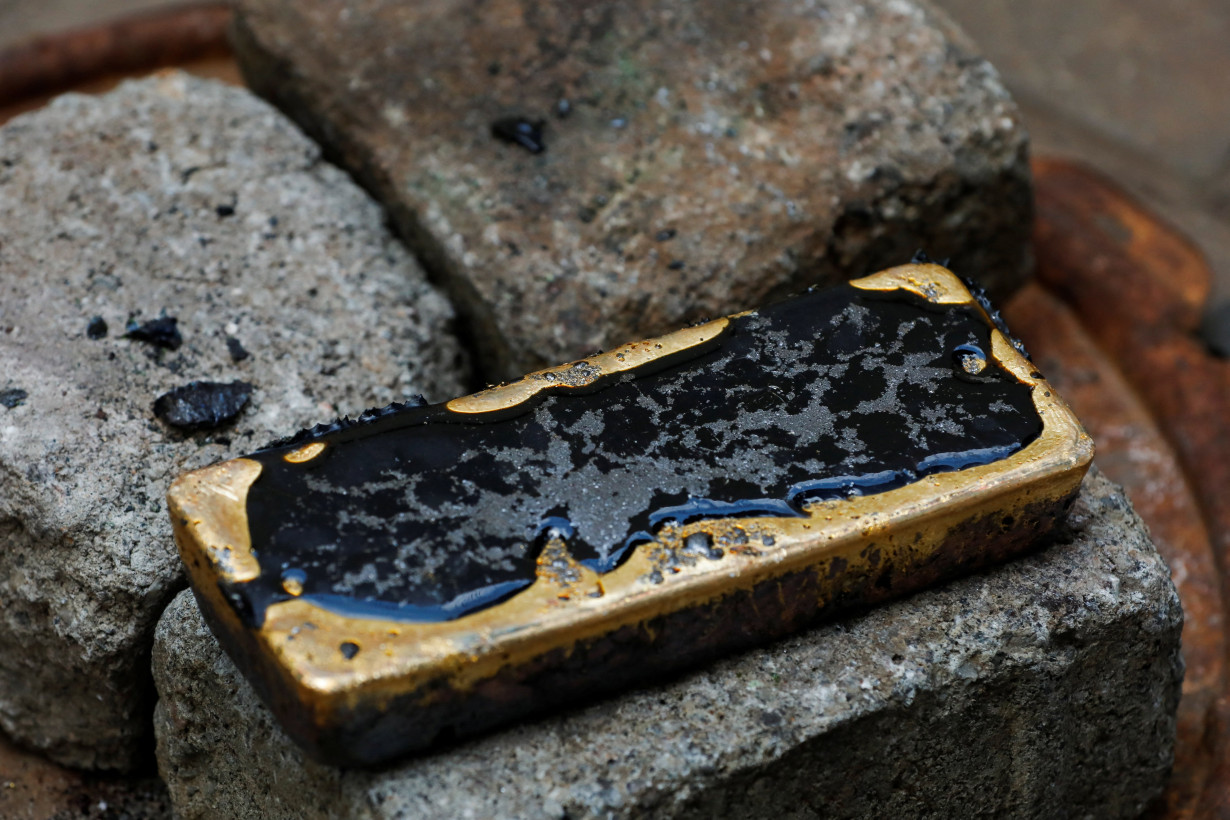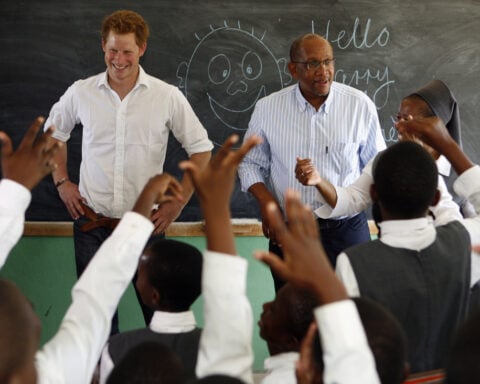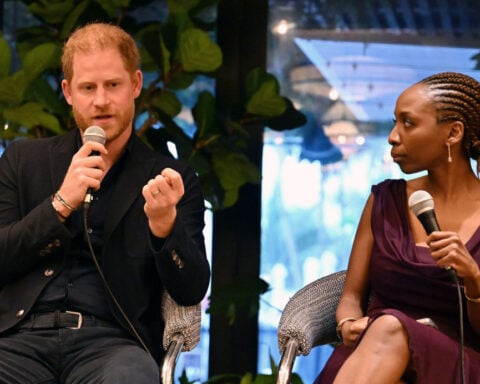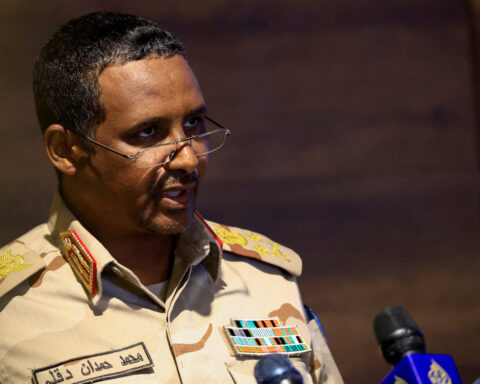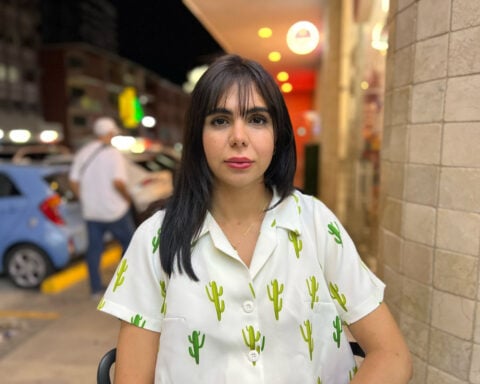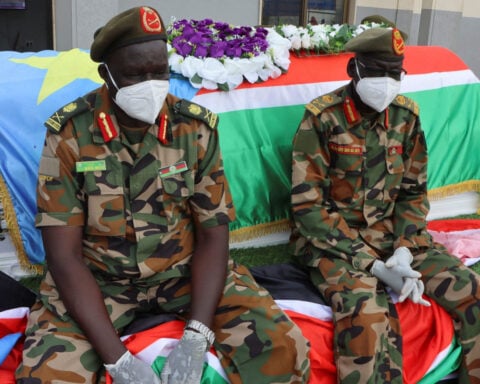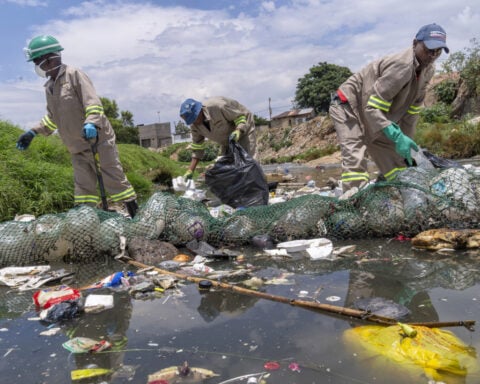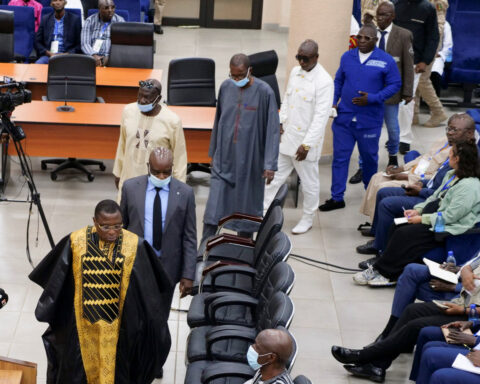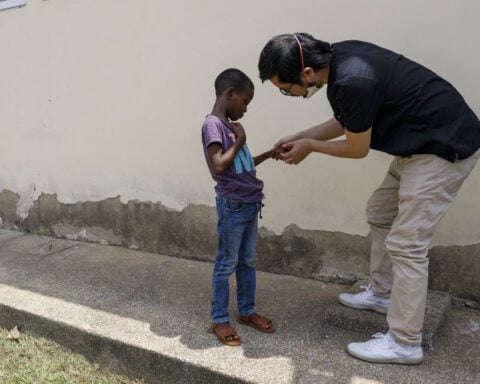By Clyde Russell
CAPE TOWN (Reuters) -Beyond the short-term volatility and uncertainty created by U.S. President Donald Trump's tariff machinations, it's likely that the longer-term trend of the world splitting into two trading blocs is accelerating.
Stripping away Trump's bluster and often contradictory actions, the message seems to be fairly clear. Trump's view of the world is that you are either with the United States or against it.
That presents a dilemma for Africa's mineral rich countries as they want to develop their resources to provide them with the maximum benefit, but they also want to stay largely neutral.
But it's increasingly likely that at some level African countries will have to decide whether they are more in the Trump camp, or whether they prefer to do business with the China-led BRICS group.
There are risks and rewards under both scenarios, and the circumstances of each African country may cause to lean one way or another.
Much of the debate at this weeks Investing in African Mining Conference in Cape Town has effectively been about the best path forward for Africa's miners and governments.
The continent is already a major producer of minerals, but it's untapped reserves are the major prize in coming decades, especially if the energy transition accelerates.
Africa is richly endowed, with an estimated 20% of global copper reserves, about the same for aluminium raw materials, 50% of manganese and cobalt, 90% of platinum group metals, 36% of chromium, as well as reserves of lithium, uranium, gold and rare earths.
But developing its mineral resources has been often too challenging, given political instability and corruption, poor infrastructure, lack of capital and legal frameworks that make long-term investments hard to justify.
However, the increasing appetite of the world for minerals, especially to enable the energy transition, is likely to set off a new scramble for Africa, this time Africans will have more say in how it unfolds.
Finding the right partners is the challenge for African countries.
On the one hand the Western world still offers deep capital reserves, sophisticated equity markets and investors and skills and experience in mining and engineering.
But Trump is undermining these advantages with his tariffs and threats to withhold aid and other funding, as well as his habit of turning on traditional allies and flip-flopping policies.
The main issue with Trump is his apparent transactional view of the world, in which there must always be a winner and a loser, and he always wants to be the winner.
This means getting a mutually beneficial deal from the United States is going to be more difficult while Trump is in office.
NOT BEGGARS
It was perhaps this frustration that boiled over in the remarks at the Investing in African Mining event, on Monday when South Africa's Resources Minister Gwede Mantashe said Africa should withhold minerals from the United States if Trump cuts aid.
"If they don't give us money, let's not give them minerals. We are not just beggars," Mantashe told the conference, which is also known as Mining Indaba.
"We cannot continue to debate these minerals based on the dictates of some developed nations as if we have no aspirations to accelerate Africa's industrialisation and close the development deficit," Mantashe said.
These comments may be unwise in that they may serve to antagonise Trump, but they may also sharpen some thinking in the West on how best to get access to Africa's minerals.
Should Africa be looking more toward China and the rest of the BRICS nations, as the best option to unlock its mineral wealth?
The experience here has been somewhat mixed. While China has been willing to develop mines in Africa, it tends to want to do it mainly using its own people and processes, and it wants to export raw ores and beneficiate them in China.
This has limited the benefits to African countries, but there may be an option to use legislation to copy what Indonesia has done in forcing companies to commit to domestic downstream operations as part of access to raw materials.
The views expressed here are those of the author, a columnist for Reuters.
(Editing by Kim Coghill)

 Trump has begun another trade war. Here's a timeline of how we got here
Trump has begun another trade war. Here's a timeline of how we got here
 Canada's leader laments lost friendship with US in town that sheltered stranded Americans after 9/11
Canada's leader laments lost friendship with US in town that sheltered stranded Americans after 9/11
 Chinese EV giant BYD's fourth-quarter profit leaps 73%
Chinese EV giant BYD's fourth-quarter profit leaps 73%
 You're an American in another land? Prepare to talk about the why and how of Trump 2.0
You're an American in another land? Prepare to talk about the why and how of Trump 2.0
 Chalk talk: Star power, top teams and No. 5 seeds headline the women's March Madness Sweet 16
Chalk talk: Star power, top teams and No. 5 seeds headline the women's March Madness Sweet 16
 Purdue returns to Sweet 16 with 76-62 win over McNeese in March Madness
Purdue returns to Sweet 16 with 76-62 win over McNeese in March Madness
